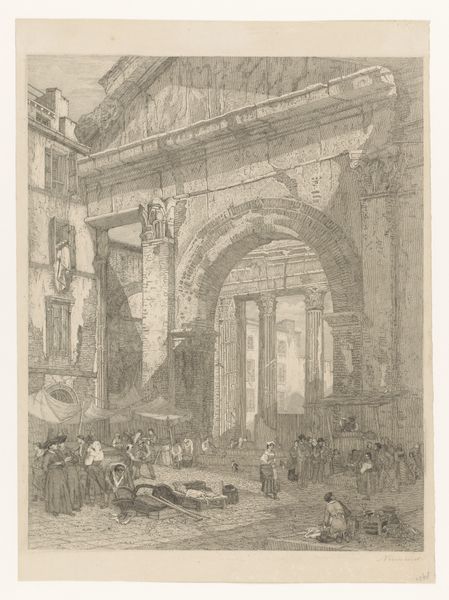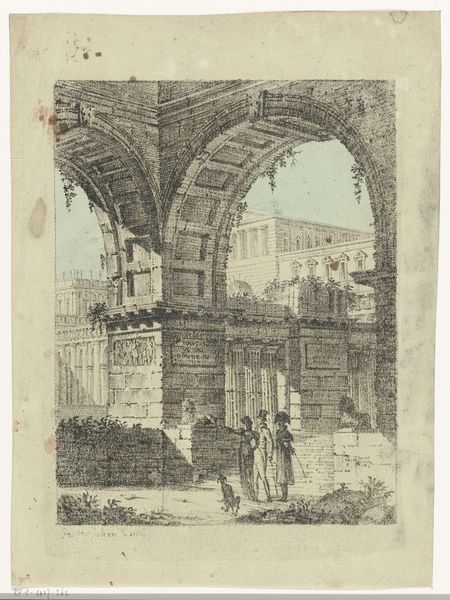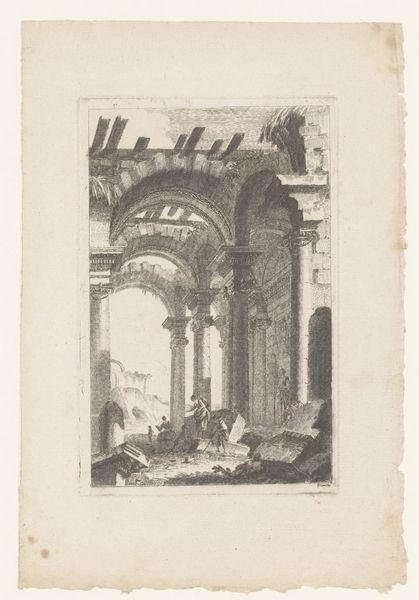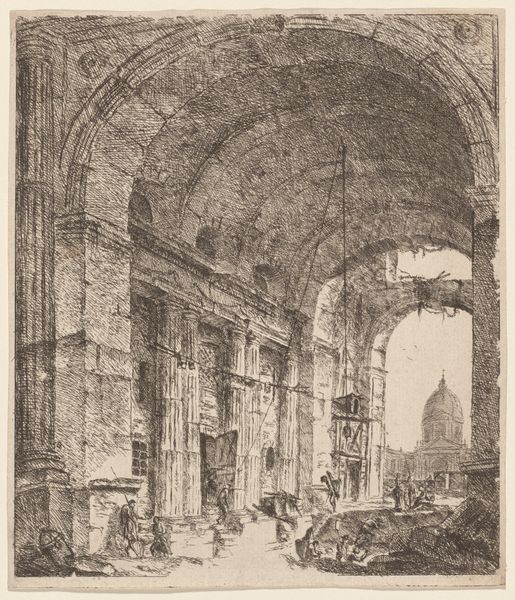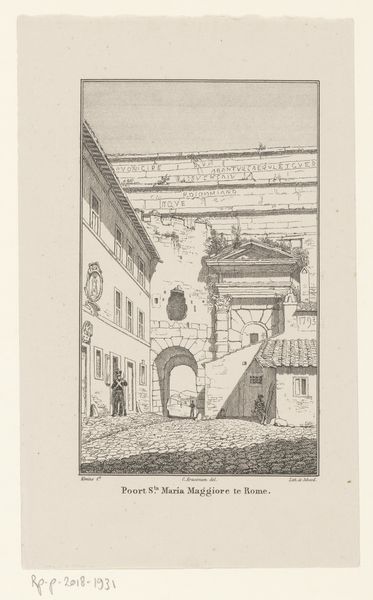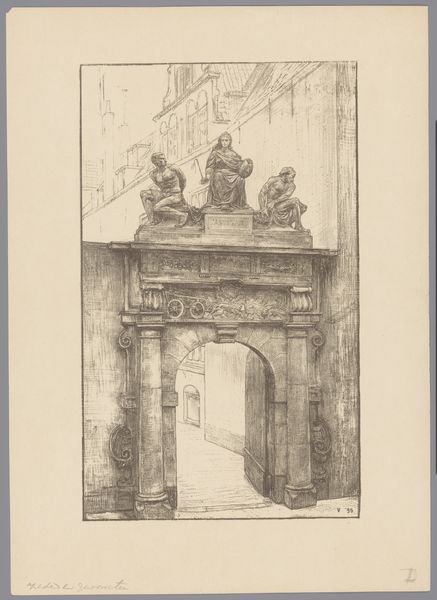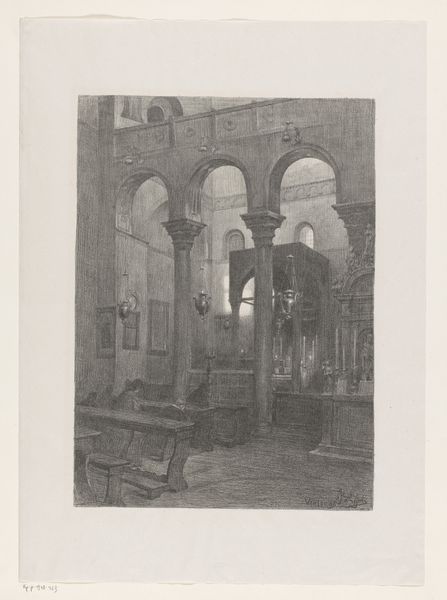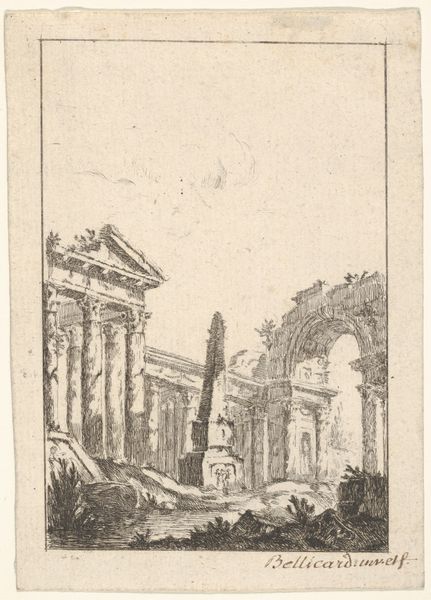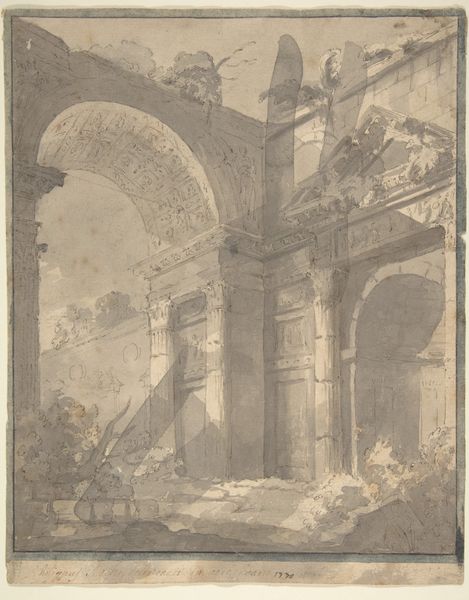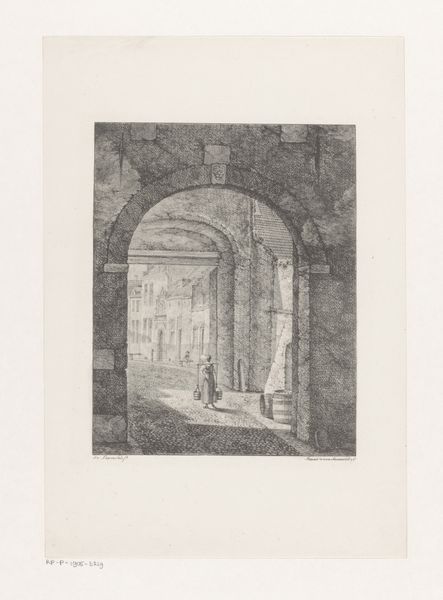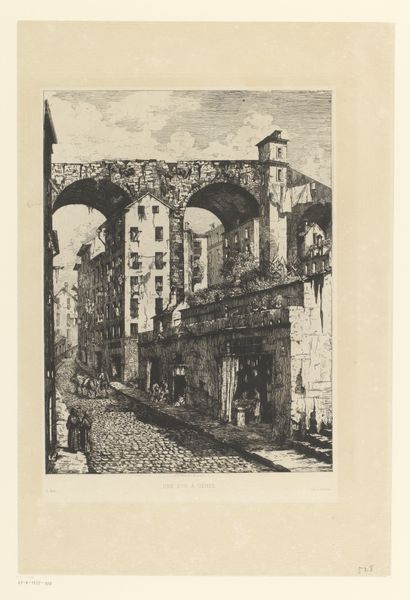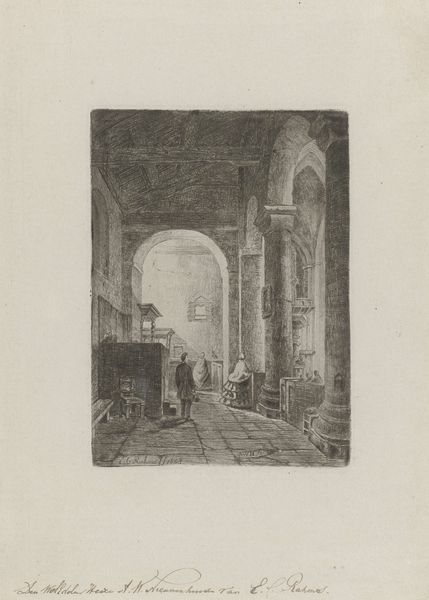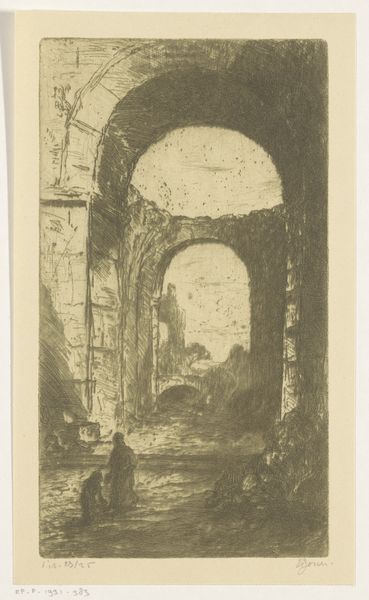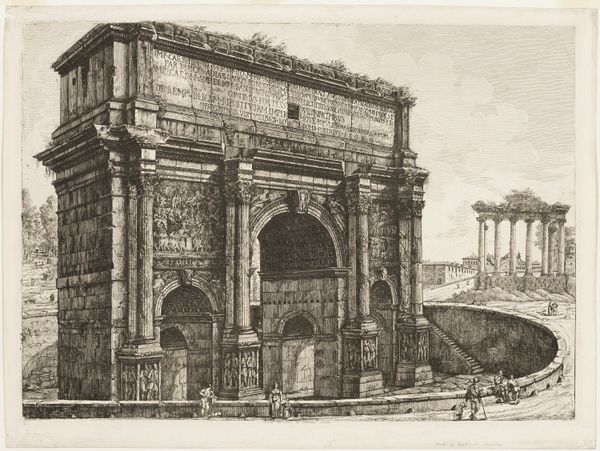
print, engraving, architecture
#
ink paper printed
# print
#
cityscape
#
academic-art
#
engraving
#
architecture
#
realism
Dimensions: height 503 mm, width 420 mm
Copyright: Rijks Museum: Open Domain
Auguste Numans made this etching of the Vismarkt at the Porticus of Octavia in Rome sometime in the 19th century. Etching involves drawing with a needle on a prepared metal plate, which is then submerged in acid, ‘biting’ the exposed lines into the surface. When printed, the lines hold ink and create the image. Look closely, and you’ll notice the textures and tones created by the etched lines. Notice how the varying depths of the lines create a sense of depth, and capture the hustle and bustle of the fish market. Numans must have spent considerable time and effort in its creation, and the process allowed him to achieve a high level of detail. In its time, the print was a relatively accessible format. Numans was thus able to offer a glimpse into the working life of Rome. Consider the labor represented, both in the market scene and in the artist’s studio. Understanding these prints, we can begin to challenge the conventional hierarchy between fine art and the everyday.
Comments
No comments
Be the first to comment and join the conversation on the ultimate creative platform.
